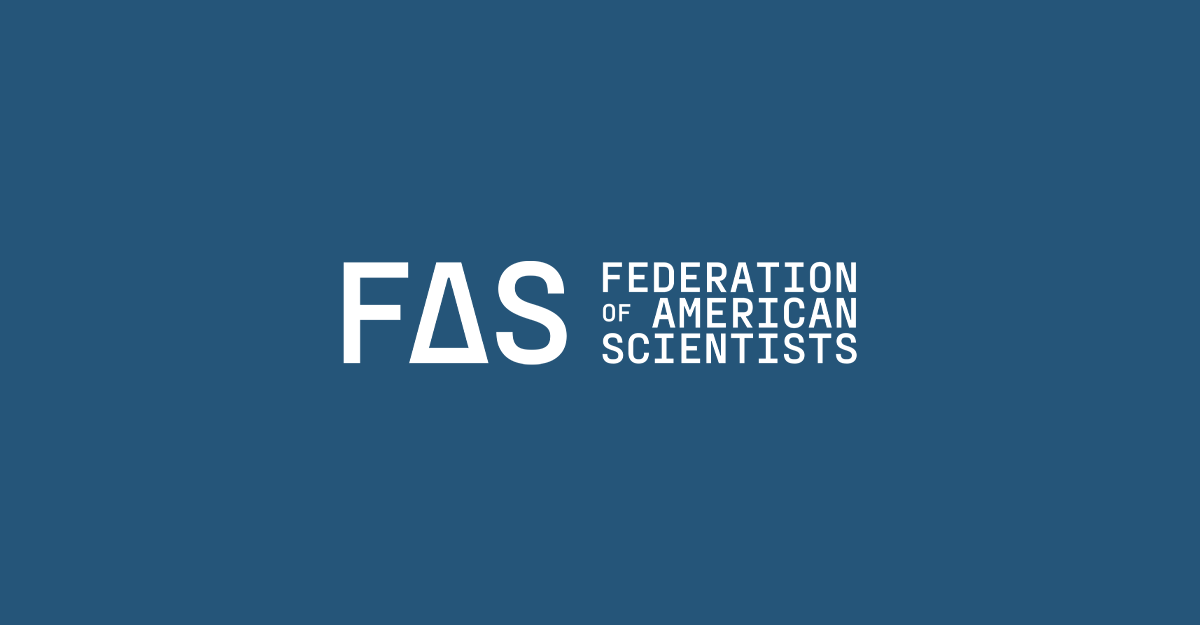
Federation of American Scientists among leading voices for federal policy action at White House Summit on Extreme Heat
Summit comes on heels of record 2024 summer heat; convenes experts on strategies to address this nationwide threat
Washington, D.C. – September 13, 2024 – The Federation of American Scientists (FAS), the non-partisan, nonprofit science think tank dedicated to deploying evidence-based policies to address national threats, is today participating in the White House Summit on Extreme Heat.
This Summit, announced by President Biden earlier this summer, will bring together local, state, Tribal, and territorial leaders and practitioners to discuss how to drive further locally-tailored and community-driven actions to address extreme heat. FAS has been a leading voice for action on this topic, and has developed a compendium of 150+ heat-related federal policy recommendations.
FAS will be represented by Hannah Safford, Associate Director of Climate and Environment, and Grace Wickerson, Health Equity Policy Manager.
“Extreme heat is affecting every corner of our nation, making it more difficult and dangerous for Americans to live, work, and play,” says Wickerson. “Heat-related deaths and illnesses are on the rise, especially among our most vulnerable populations. We must work together to tackle this public health crisis.”
“It’s September, and millions of Americans are still suffering in triple-digit temperatures,” adds Safford. “We applaud the Biden-Harris Administration for drawing attention to the increasing challenges of extreme heat, and for driving on action to build a more heat-resilient nation in 2025 and beyond.”
FAS’s Ongoing Work to Address Extreme Heat
To date FAS has fostered extensive policy innovation related to extreme heat:
- Our Extreme Heat Policy Sprint engaged more than 85 experts and generated heat-related policy recommendations for 34 federal offices and agencies.
- This work is comprehensively summarized in our Whole-of-Government Strategy To Address Extreme Heat, and our associated library of heat policy memos.
- FAS has delivered expert briefings on extreme heat to the White House and federal agencies. Our policy solutions have informed Senate appropriations requests, proposed legislation, and Congressional Research Service reports.
FAS Workshops Will Harness Momentum From White House Summit
Immediately following the White House Heat Summit, FAS will collaborate with the Arizona State University (ASU) Knowledge Exchange for Resilience to host the Celebration for Resilience 2024 Symposium and Gala on September 19th in Tempe.
On Friday, September 20th, FAS will partner with Arizona State University (ASU) to host workshops in Tempe, AZ, Washington DC, and virtually on Defining the 2025 Heat Policy Agenda. This workshop will harness momentum from the White House Summit on Extreme Heat, providing a forum to discuss actions that the next Administration and new Congress should prioritize to tackle extreme heat. For more information and to participate, contact Grace Wickerson (gwickerson@fas.org).
###
ABOUT FAS
The Federation of American Scientists (FAS) works to advance progress on a broad suite of contemporary issues where science, technology, and innovation policy can deliver dramatic progress, and seeks to ensure that scientific and technical expertise have a seat at the policymaking table. Established in 1945 by scientists in response to the atomic bomb, FAS continues to work on behalf of a safer, more equitable, and more peaceful world. More information at fas.org.
A deeper understanding of methane could help scientists better address these impacts – including potentially through methane removal.
We are encouraged that the Administration and Congress are recognizing the severity of the wildfire crisis and elevating it as a national priority. Yet the devil is in the details when it comes to making real-world progress.
The good news is that even when the mercury climbs, heat illness, injury, and death are preventable. The bad news is that over the past five months, the Trump administration has dismantled essential preventative capabilities.
The Federation of American Scientists supports H.Res. 446, which would recognize July 3rd through July 10th as “National Extreme Heat Awareness Week”.